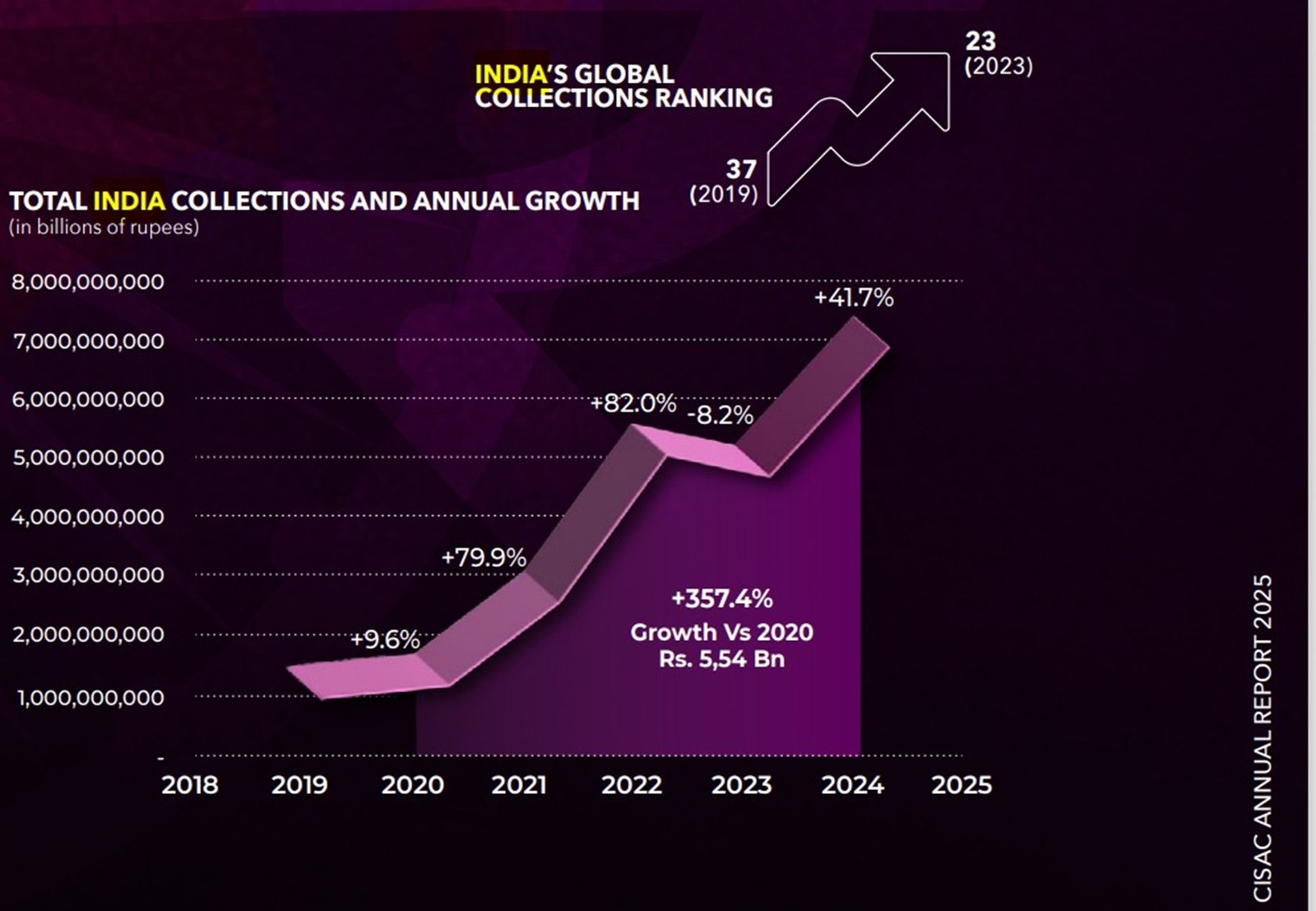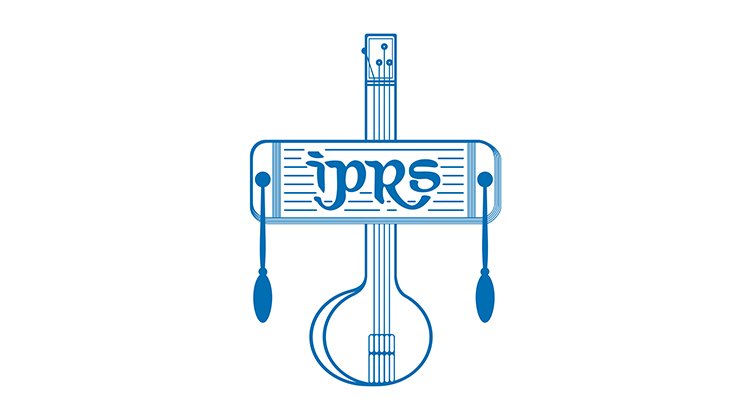India’s music market is experiencing explosive growth, evidenced by a remarkable 357 percent surge in royalty collections since 2020. In the fiscal year 2024-25 alone, collections have surpassed ₹7 billion, firmly establishing India as one of the world’s fastest-growing music markets.
This significant achievement is highlighted in the 2025 Global Report released by the International Confederation of Societies of Authors and Composers (CISAC), with The Indian Performing Right Society Ltd. (IPRS) at the forefront of this transformative movement.
According to a press release issued today, IPRS has warmly welcomed the CISAC Annual Report 2025. The report not only celebrates India’s impressive growth in royalty revenues but also issues a strong global appeal for ethical regulation of Artificial Intelligence (AI) within the creative industry. It underscores the pressing need to safeguard creators’ rights amidst rapid technological advancements and advocates for fair remuneration and sustainable practices within the industry.
IPRS, India’s leading copyright society for music, has played a pivotal role in this compelling growth narrative. The organization has been instrumental in providing structured guidance to both music users and creators, while actively lobbying for a robust legal framework that supports copyright compliance across the nation. The CISAC report specifically credits IPRS’s ongoing collaboration in formulating a strategic roadmap aimed at propelling India into the top 10 creative economies worldwide. As part of this ambitious vision, IPRS is strategically focusing on streamlining digital royalty collections, addressing existing gaps in non-digital revenue streams, and significantly upgrading its licensing and royalty distribution mechanisms to ensure creators are fairly compensated in the evolving landscape.

Legendary lyricist and Chairman of IPRS, Javed Akhtar, commented on this significant milestone, stating, “A society that cherishes music must ensure that its creators are not forgotten in the shadows of technology and commerce. The significant rise in royalty collections is more than a number—it is a reflection of growing awareness around intellectual property, fair value for creative work, and the need for compliance across the industry. Yet, many challenges remain—as music travels far and wide in the digital age and AI presents new threats. Our mission is far from over.”
Akhtar further emphasized the critical need for creator education and the ethical utilization of their work in the current digital era. “As a body representing those behind the music, we at IPRS are committed to protecting the rights of every music creator, addressing systemic gaps, and building an ecosystem where creativity is respected, rewarded, and rightfully owned,” he added, underscoring IPRS’s dedication to the artistic community.
Björn Ulvaeus, CISAC President and a member of ABBA, also highlighted the urgent need for regulating generative AI, noting, “We are living through an era of unprecedented transformation. Nowhere is this more evident than in the rise of generative AI—a force that raises fundamental questions about the nature of authorship and creativity. Protecting creators’ rights in no way means trying to stop the advance of technology. It means embracing and licensing AI tools in a safe, legal environment.” His statement resonates with the global creative community’s concerns about the impact of AI on their livelihoods.
Rakesh Nigam, CEO of IPRS, stated that the record-breaking growth in royalty revenues signifies a crucial turning point for India’s music economy. “At IPRS, we are proud to lead this transformation—empowering creators, strengthening systems, and working with global partners to raise the standards of copyright governance. As technology reshapes the creative landscape, it is critical that innovation does not come at the cost of artistic integrity.” Nigam’s words highlight IPRS’s proactive role in navigating the challenges and opportunities presented by technological advancements.
A key highlight within the CISAC report is IPRS’s active participation in a pilot project designed to link the International Standard Musical Work Code (ISWC) with the International Standard Recording Code (ISRC). This crucial initiative aims to significantly improve the accuracy and speed of royalty payments for music creators in India, ensuring they receive their dues more efficiently.
Furthermore, CISAC’s accompanying Global Economic Study, developed in collaboration with PMP Strategy, issues a stark warning about a potential 24% revenue loss for music creators by 2028 if effective regulations surrounding AI-generated content are not implemented. In response to this looming threat, IPRS has firmly endorsed CISAC’s strong call for transparency in AI training data, the mandatory requirement of authorization before any usage of creative works, and the establishment of fair compensation mechanisms for creators whose work might be utilized by AI.
For those interested in a deeper understanding of the global trends and India’s position within them, the full CISAC Annual Report 2025 is available on the IPRS website: [Click here to read the report]([invalid URL removed]).
Summary:-
- India’s royalty collections have seen a massive 357% increase since 2020, crossing ₹7 billion in FY24-25, as highlighted in the CISAC Global Report 2025.
- The Indian Performing Right Society Ltd. (IPRS) is credited with leading this growth through its efforts in copyright compliance, digital collection streamlining, and advocating for creators’ rights.
- The CISAC report and IPRS leadership, including Javed Akhtar, also emphasized the urgent need for ethical AI regulation to protect creators’ rights and ensure fair compensation.
- IPRS is actively involved in initiatives like linking ISWC and ISRC to improve royalty payment accuracy and supports CISAC’s call for transparency and fair compensation regarding AI’s use of creative works.

